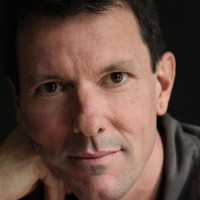His career ascent had slowed. He was angry about the size of his bonus. He was about to be fired, so he decided to quit and get famous.
Those are some of the things that have been said in the past 10 days about Greg Smith, the Goldman Sachs executive director who announced his departure March 14 with an op-ed in The New York Times, citing the firm's "toxic and destructive" environment.
His comments were predictable; accusing the accuser is standard damage-control behavior.
But to me, the most notable comments came from people who assumed he was sincere. They said he should have taken the matter to his bosses.
Imagine that!
"Hey, boss, nice tie. Is that gold?
"Don't touch!"
"I have been thinking; let's change the culture that is making everybody here rich and powerful."
"Why?"
"We're making money at the expense of our clients, not with them."
"Is that illegal?"
"No, but it's unethical"
"Ethics! I knew we were forgetting something. Thanks! Here's a Ferrari."
Going to the boss makes sense if you want to discuss a few colleagues or a specific practice. But Smith is complaining of a toxic culture, and if the culture is toxic, the boss is toxic, too.
To change a toxic culture, you need to provoke a crisis, something that will activate an outside force — unhappy clients, worried investors, aggressive journalists.
Assuming Smith was sincere, that's what he was trying to do. Whether there is enough flammable material around to turn Smith's spark into an explosion depends on how many elements are in a critical stage of change — whether there are Goldman insiders trying to weaken the leaders who will use this to quicken their efforts, whether clients who were getting disenchanted with Goldman will now take their business elsewhere, whether competitors step up efforts to take Goldman clients, whether big pension fund managers see this as a time to sell the stock. If the op-ed triggers some of these actions, it could lead to reform.
In the meantime, people at Goldman and their defenders should curb their complaints about being unfairly attacked. These people are masters of cost-benefit analysis. They know the great economic and social benefits of working at Goldman. They also by now know the costs; from time to time, your motives and your ethics will be called into question.
How could they not? Goldman is a collection of very smart, very ambitious people assembling for the purpose of becoming very rich. Unless there is some force that is putting a continuous check on their ambitions, they're going to go too far.
This isn't "anti-business sentiment." It's an article of our national creed.
In The Federalist No. 51, James Madison raised the concept of checks and balances. He wrote: "It may be a reflection on human nature, that such devices should be necessary to control the abuses of government. But what is government itself, but the greatest of all reflections on human nature? If men were angels, no government would be necessary."
Of course, some political groups cite this idea to decry the concentration of power in government, but they ignore the same principle in the private sector. Madison, however, did not.
He also wrote in Federalist 51, "This policy of supplying, by opposite and rival interests, the defect of better motives, might be traced through the whole system of human affairs, private as well as public."
Where are the rival interests to offset the ambitious motives at Goldman? It would be in the action of clients and regulators and investors and the general public, whose interests Greg Smith was trying to activate.
So those who say that Smith should have acted within the system should acknowledge that the wisdom of the Founding Fathers applies also to Goldman. In fact, the more power an individual or organization has the more suspicion is justified.
Lord Acton, who famously wrote that "absolute power corrupts absolutely," also wrote in the same letter:
"I cannot accept your canon that we are to judge Pope and King unlike other men, with a favourable presumption that they did no wrong. If there is any presumption it is the other way against holders of power, increasing as the power increases."
If Smith's op-ed accomplishes anything, it will at least get the employees of Goldman more scrutiny, and that would be a good thing — not because they are bad people, but because they are people.
Tom Rosshirt was a national security speechwriter for President Bill Clinton and a foreign affairs spokesman for Vice President Al Gore. Email him at [email protected]. To find out more about Tom Rosshirt and read features by other Creators Syndicate writers and cartoonists, visit the Creators Syndicate Web page at www.creators.com.






View Comments